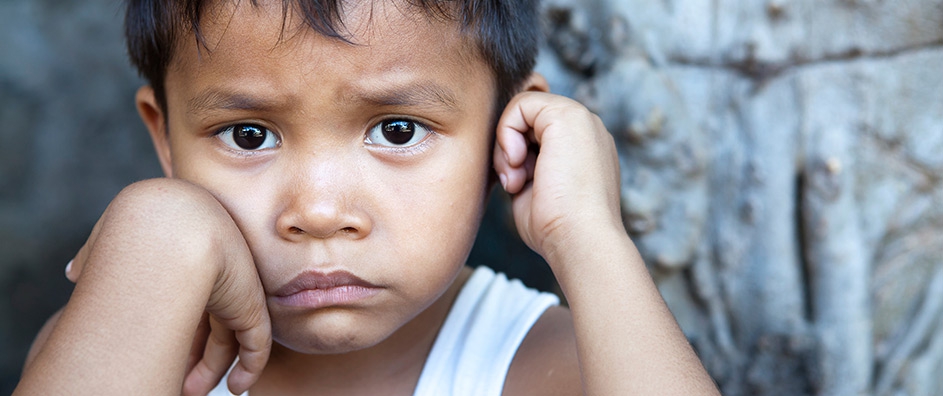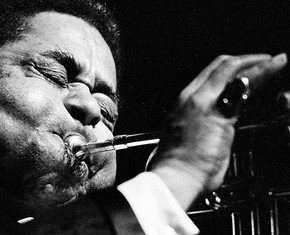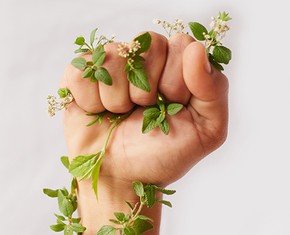The views expressed in our content reflect individual perspectives and do not represent the authoritative views of the Baha'i Faith.
Once I helped make a documentary film about homeless people on Skid Row in Los Angeles. Called Lost Angels, the film focuses on the lives of eight people who live on the streets, telling the harrowing and moving stories of how they ended up there.
I learned something on the Row. It turns out that extremely poor people typically think about the spiritual aspects of life a great deal more than people who lead comfortable lives. On Skid Row, just like in the deeply-impoverished countries I’ve seen, the poor rely on their connection to God much more than those who rely on their bank accounts.
It seems counter-intuitive, I know. You would think that homeless people only have concerns about day-to-day survival, but I learned differently. Instead, when you’re poor you join the company of those who have suffered greatly, and that furrows and deepens the soul:
O ye homeless and wanderers in the Path of God! Prosperity, contentment, and freedom, however much desired and conducive to the gladness of the human heart, can in no wise compare with the trials of homelessness and adversity in the pathway of God; for such exile and banishment are blessed by the divine favour, and are surely followed by the mercy of Providence. The joy of tranquillity in one’s home, and the sweetness of freedom from all cares shall pass away, whilst the blessing of homelessness shall endure forever, and its far-reaching results shall be made manifest.
Abraham’s migration from His native land caused the bountiful gifts of the All-Glorious to be made manifest, and the setting of Canaan’s brightest star unfolded to the eyes the radiance of Joseph. The flight of Moses, the Prophet of Sinai, revealed the Flame of the Lord’s burning Fire, and the rise of Jesus breathed the breaths of the Holy Spirit into the world. The departure of Muhammad, the Beloved of God, from the city of His birth was the cause of the exaltation of God’s Holy Word, and the banishment of the Sacred Beauty [Baha’u’llah] led to the diffusion of the light of His divine Revelation throughout all regions. Take ye good heed, O people of insight! – Abdu’l-Baha, Selections from the Writings of Abdu’l-Baha, pp. 279-281.
Consider it: all the prophets of God, the founders of the world’s great Faiths, wandered homeless and poor through the world.
Don’t get me wrong—I’m not saying we should all aspire to abject poverty and homelessness. We can, however, recognize and empathize with the struggles and difficulties of the poor, and do something to alleviate their suffering:
What could be better before God than thinking of the poor? For the poor are beloved by our heavenly Father. When His Holiness Christ came upon the earth those who believed in him and followed him were the poor and lowly, showing the poor were near to God. When a rich man believes and follows the Manifestation of God it is a proof that his wealth is not an obstacle and does not prevent him from attaining the pathway of salvation. After he has been tested and tried it will be seen whether his possessions are a hindrance in his religious life. But the poor are especially beloved of God. Their lives are full of difficulties, their trials continual, their hopes are in God alone. Therefore you must assist the poor as much as possible, even by sacrifice of yourself. No deed of man is greater before God than helping the poor. Spiritual conditions are not dependent upon the possession of worldly treasures or the absence of them. When physically destitute, spiritual thoughts are more likely. Poverty is stimulus toward God. Each one of you must have great consideration for the poor and render them assistance. Organize in an effort to help them and prevent increase of poverty. – Abdu’l-Baha, Foundations of World Unity, p. 36.
No economic policy or governmental agency or service organization can replace individual empathy, love and tenderness. When a person expresses altruistic, unselfish, devoted caring for other human beings, their efforts have an enormous impact.
The Baha’i teachings ask us all to find ways to help the poor, and to do it from the heart.
















Comments
Sign in or create an account
Continue with Googleor